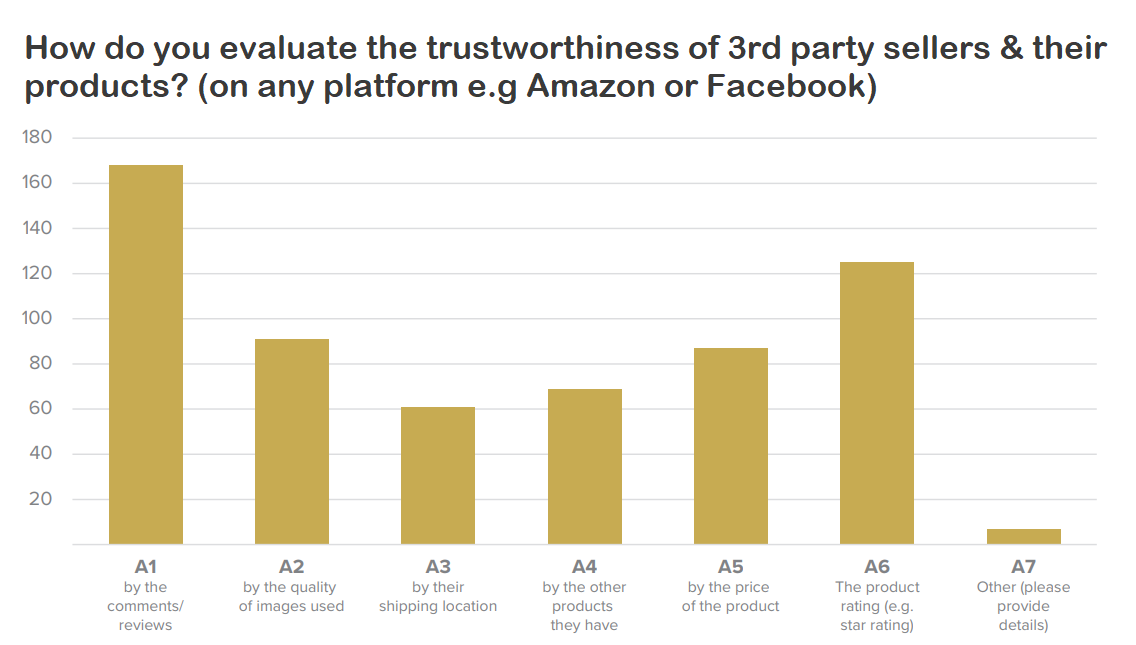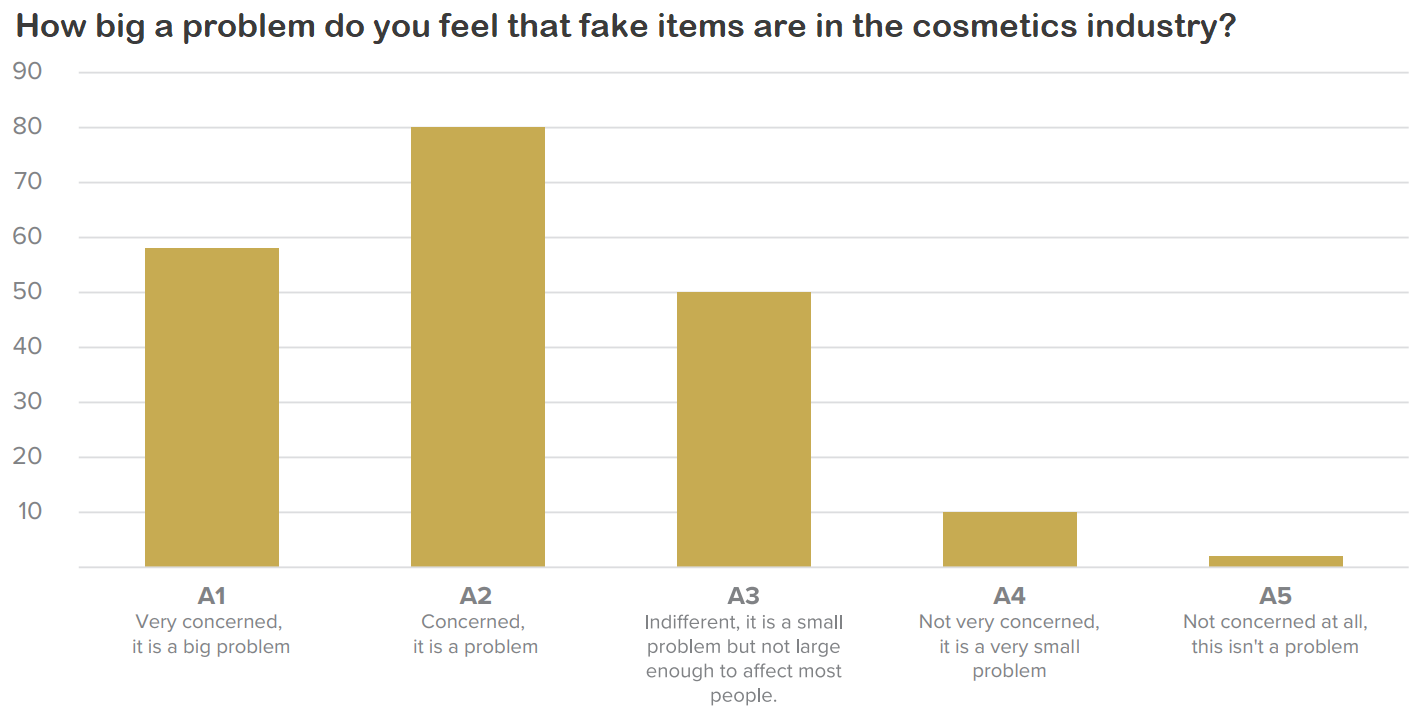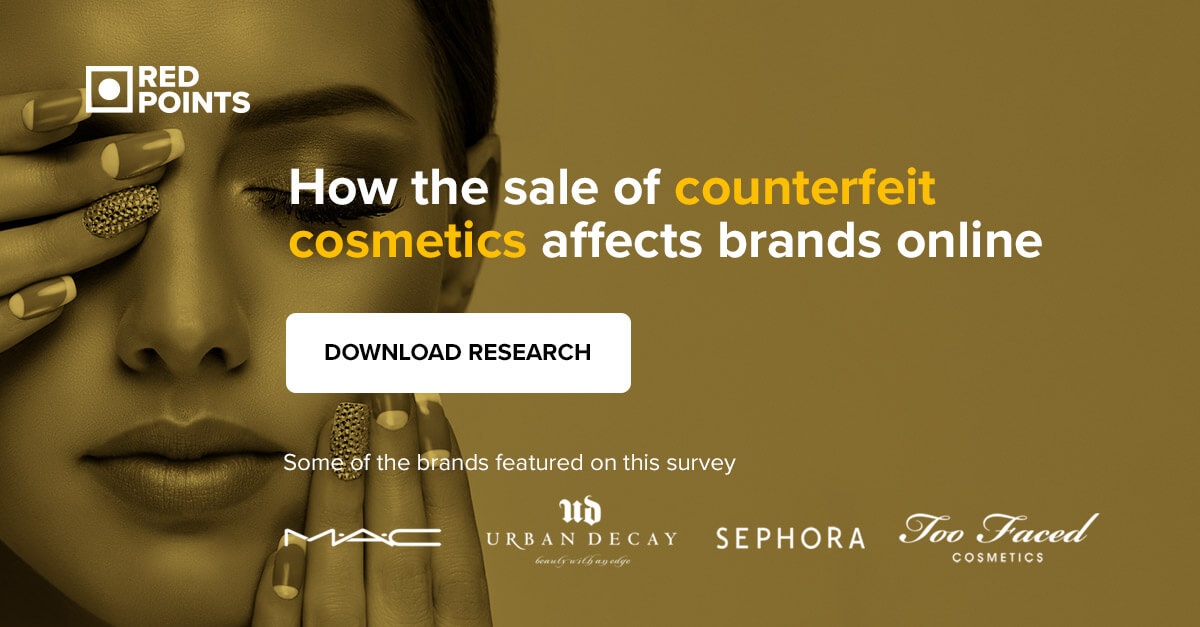
Table of Contents:
Last updated on: June 8, 2022
Research from Red Points highlights hazardous shopping behaviour from cosmetics consumers, who are falling for counterfeiter’s tricks more commonly than ever.
The cosmetics industry has been one of the biggest adopters of digital marketing following the rise of the popularity of the internet. More recently, cosmetics brands have especially focused their efforts on social media platforms as one of its key sales channels.
The bad news for authentic cosmetics brands is that counterfeiters have kept pace with their use of modern media. Sales of counterfeit cosmetics cost the legitimate industry around $75 million a year, according to US Customs and Border Protection, and their use of social media is a huge driving factor behind their success. A studying analysing appearances of counterfeit and legitimate goods within hashtags on Instagram found that one-fifth to one-third of posts are from counterfeit sellers.
A study by BrandBastion into the Instagram accounts of 12 luxury fashion brands found within 36,000 comments found that:
This highlights the pervasiveness of counterfeiters hijacking legitimate users’ posts for their own purposes. A key strategy employed by cosmetics counterfeiters is to find posts by famous luxury brands and popular influencers, which have an enormous number of followers. Counterfeiters then comment on these posts with links to counterfeit copies of the item for sale, which are usually posted on online marketplaces like AliExpress, eBay and Amazon.
The dangers posed to consumers of these knockoffs cannot be understated. Counterfeit cosmetics have been found to contain heavy metals like lead and mercury, extremely poisonous substances like cyanide, arsenic and paint-stripper, and even animal faeces has been discovered. Using these products is extremely dangerous – consumers are at risk of effects from simple rashes to chemical burns on their skin to damage to their nervous system and internal organs.
For this reason, it’s vital that make-up fans remain careful with what they choose to buy and apply to their skin. However, the results of this Red Points survey suggest that many cosmetics consumers tend to partake in high-risk shopping behaviours.
From Red Points’ market research into counterfeit cosmetics, over 45% of respondents have already purchased cosmetics via social media, and overall 70% of respondents stated they would consider buying an item via social media from a 3rd party seller. Brand protection specialists urge consumers to be extremely cautious when making purchases of products listed on social media, especially when they come from third parties.
The fact that 19.5% of our respondents admitted to having bought a fake cosmetics item online by mistake goes to show how good counterfeiters are getting at fooling shoppers online.
In another question from the study, respondents stated that their biggest motivator for buying cosmetics from a third party on social media is trust in person or account selling the product. This appears to be cause for optimism – that is until the source of consumers’ trust is examined, as in the graph below.

This data displays a lack of understanding from consumers about the online sale of fake makeup . Comments, reviews and ratings are easily manipulated on both social media and ecommerce platforms, and images are not a reliable method of evaluation either. Brand protection professionals would use a combination of price, shipping location and the seller’s inventory to evaluate the likelihood of the product being genuine. These factors were only selected by around 35% of participants.
Furthermore, after trust in the account, the next most common motivator for making a purchase was if the product was offered at a discount, which is the primary tactic employed by counterfeiters.
69% of respondents displayed concern about the presence of counterfeits in the cosmetics industry, seen in the graph below. So we can clearly see that make-up fans are not ignorant about the presence of counterfeiting. People understand that the issue is widespread, and is something that needs to be dealt with.

The issue is that price-sensitivity greatly skews consumers’ decision-making in certain situations. Even at the risk of using a potentially dangerous product, if the discount offered is low enough, it can easily push cosmetics users to roll the dice and purchase a product they know could be harmful to them.
Consumers and internet users in general would benefit hugely from education on brands and the dangers of counterfeiting. Per Joan Porta, IP Protection Specialist:
One of the most important steps brands should take to protect their intellectual property is customer education. For products like cosmetics, it’s important for customers to know the dangers of counterfeits. These items can really harm people, or even put their lives in danger, but not everyone who uses cosmetics is aware of this and may fall into the trap of trusting discounted fakes on social media.
Joan Porta, IP Protection Specialist
To add to this, any information on the methods employed by counterfeiters is also important to educate people on. As fast as the landscape of the internet changes, counterfeiters change even more quickly. They are constantly testing new methods and strategies to sell their products, and will take advantage of anything that increases their sales. So the more consumers stay in the know about the operations of these black marketers, the better protected they will be from the harms of counterfeits.
